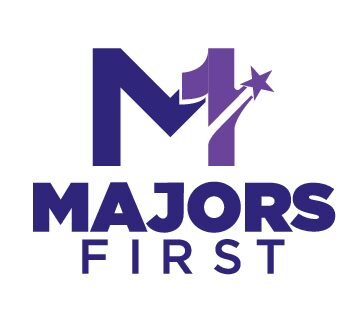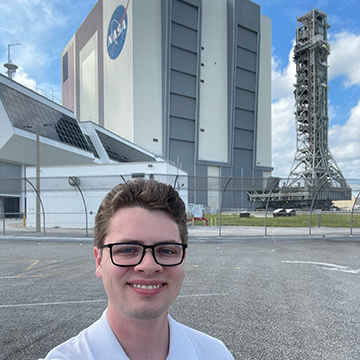Millsaps Yucatán Reserve
Research &
learning in Mexico
With its incredible biological and archaeological resources, the Millsaps College Biocultural Reserve is the center for our Living In Yucatán Program. Millsaps College (and its nonprofit organization Kaxil Kiuic) supports and operates a 4,500-acre tropical forest biocultural reserve in the heart of the Yucatán Peninsula.
We offer courses in archaeology, business, ecology, education, geology, history, literature, creative writing, Spanish, religion and socio-cultural anthropology. Students may return to Yucatán to take additional courses and may decide to participate in the ongoing archaeological and natural science research going on at the reserve.
Kaxil Kiuic: A Reserve Without Boundaries
The Kaxil Kiuic Biocultural Reserve is a living laboratory where research and education are carried out to disseminate knowledge and to help sustain the reserve’s ecological and cultural resources. It consists of 4,500 acres of dry tropical forest and contains within it the ancient Maya center of Kiuic, as well as the remains of the colonial community of San Sebastian. The reserve’s abundant and diverse flora and fauna make it one of the best remaining zones of dry tropical forest in the Yucatán Peninsula.
The goal is to provide a setting where researchers and educators from Millsaps College and a wide range of international disciplines work and study together exchanging ideas and information, both formally and informally. It is also a place dedicated to working with communities from the local level to the international level in a wide range of biocultural issues.
The Kaxil Kiuic Biocultural Reserve and the major archaeological site on the reserve help address both challenges by providing an opportunity to preserve, manage and conduct cutting-edge interdisciplinary research at an archaeological site within an endangered ecosystem. The reserve provides unique opportunities for interdisciplinary study in archaeological, environmental and cultural inquiry as well as varied educational and community partnerships.
The reserve addresses the challenge of pursuing archaeological, biological and cultural research while protecting current ecosystems and living communities by removing the traditional boundaries of biological, geological, historical archaeological and social science research and creating innovative community partnerships. While faculty and students are deeply involved in this initiative, ultimately this program is designed to model a community of learners made up of local civic, cultural and educational leadership who are committed to addressing complex cultural and ecological issues.
By integrating archaeology, cultural preservation and ecology, the reserve creates a new concept of conservation, tourism and economic development from which students, scholars and local communities will benefit.
Education
Kaxil Kiuic is dedicated to preserving the environment and cultural heritage of the Puuc region of Yucatán. Focused on research and sustainability, this living laboratory supports a broad range of field-based learning opportunities.
Serving as the locus for a wide range of educational programs that utilize resources throughout the area, Kaxil Kiuic provides a unique context for carrying out educational programs in a living laboratory or “real life” setting. A place where the complexity of Maya life (both past and present) may be experienced, Kiuic is well suited for topical educational programs as well as those seeking an interdisciplinary approach to the study of the region’s history, culture and ecology.
Research
The Kaxil Kiuic Biocultural Reserve conducts important research and education in archaeology, biology and conservation. Our research program focuses on providing understanding about the past and present, conserving the Puuc region´s unique natural and cultural heritage, and contributing to regional development by working with state and local governments, Puuc Maya communities and NGOs.
Our programs are internationally recognized, and our partners include Mexico´s National Institute for Anthropology and History (INAH), the University of Yucatan (UADY), National Forestry Commission (CONAFOR), Ministry of Natural Resources and Environment (SEMARNAT), C.I.C.Y., UNDP, USAID, U.S. Forest Service, National Geographic Society, National Science Foundation, Annenberg Foundation and the Nature Conservancy.
Facilities
The Millsaps Yucatan Program has three locations and facilities. The Kiuic Reserve consists of a 4,500-acre biocultural reserve along with an off-the-grid Research and Learning Center; a laboratory and living/learning research facility in the nearby Maya town of Oxkutzcab; and the Center for Business and Culture, a dormitory-classroom facility in Merida developed by the Else School of Management.
While at Millsaps College students can take advantage of our unique study-abroad opportunities by taking a course in the Millsaps Yucatán Program and/or doing research or an internship in a wide variety of fields at one of our facilities.

Latest News
Alumni Spotlight: Madelyn Palomeque, Class of 2014
Madelyn gives back to Millsaps because she believes in the transformative power of a liberal arts education. As a recipient of the Presidential Scholarship, she is committed to supporting future generations of students, ensuring they have the same enriching experience that shaped her life.

Alumni Spotlight: Amanda Gerhardt, Class of 2018
Millsaps offers students the opportunity to engage with diverse perspectives and build meaningful relationships.

Majors First! Millsaps Launches Support Network for First-Gen Students
Many first-gen students feel isolated and unsure about how to approach college. Majors First seeks to break down the barriers, foster engagement, increase success and promote a sense of community among these students.

Millsaps to the Moon!
Wingfield’s journey from Millsaps to NASA exemplifies the value of a liberal arts education in preparing students for highly technical fields.
